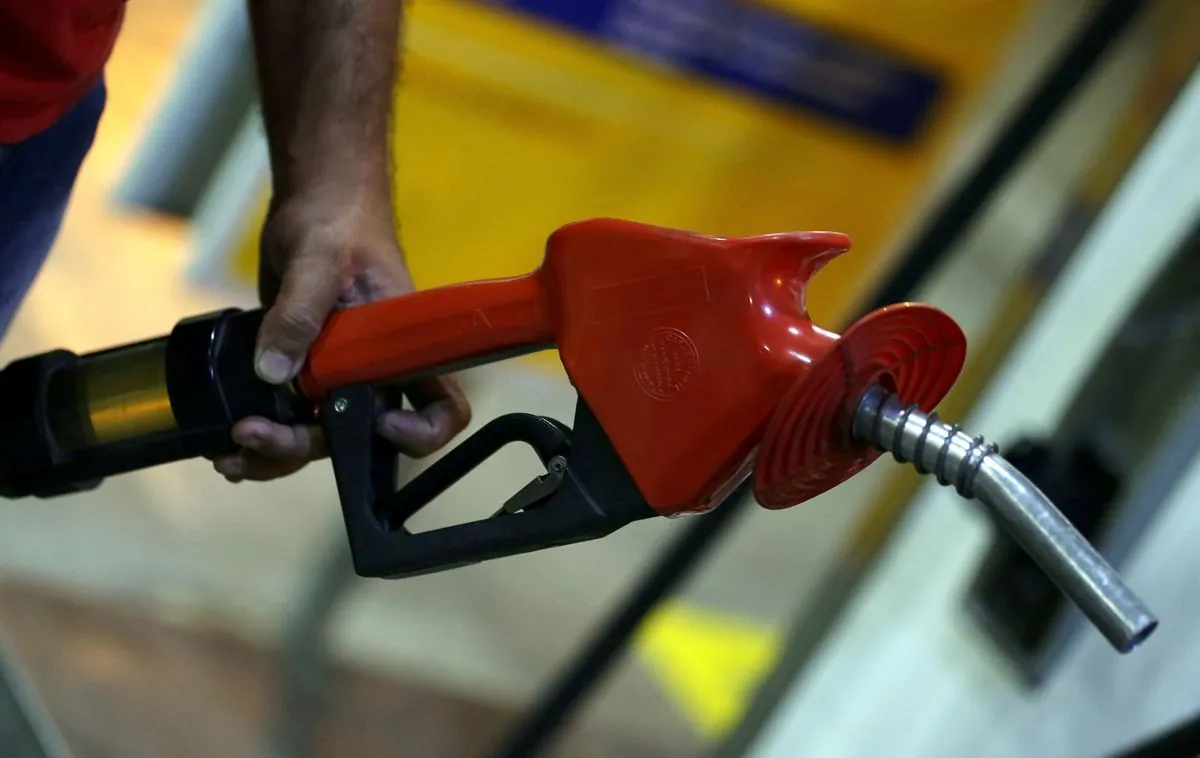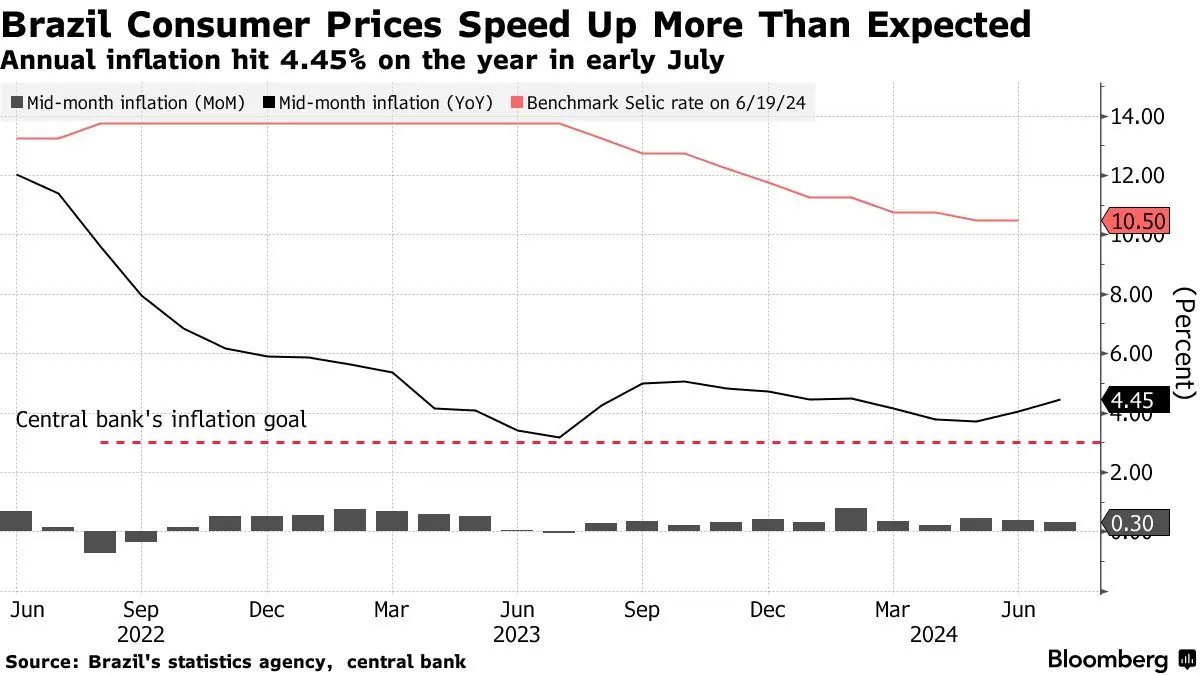Brazil's July Inflation Surpasses Expectations, Fueled by Gasoline and Airfares
Brazil's July inflation exceeded forecasts, driven by rising gasoline and air ticket prices. The central bank remains vigilant, ready to adjust interest rates if needed to control inflation within its target range.

Brazil's consumer prices in July 2024 surpassed expectations, primarily due to increases in gasoline costs and airfares. This development has added to the uncertainty surrounding monetary policy in Latin America's largest economy.
According to the Brazilian Institute of Geography and Statistics (IBGE), prices rose by 0.38% in July, accelerating from June's 0.21% increase and surpassing economists' projections of a 0.35% monthly rise. The annual inflation rate reached 4.50%, up from 4.23% in June, touching the upper limit of the central bank's tolerance band.

Andres Abadia, chief Latin America economist at Pantheon Macroeconomics, commented on the situation:
"Overall, this was a poor start to the quarter due to temporary shocks. But we expect these pressures to ease soon, keeping underlying inflation pressures under control over the next few months."
The Banco Central do Brasil, established in 1964, has stated in its recent policy meeting minutes that it would not hesitate to raise interest rates if necessary to bring inflation down to its 3% target. This stance reflects the central bank's commitment to price stability, a key focus since the adoption of an inflation targeting regime in 1999.
The inflation data comes amid currency fluctuations, with the Brazilian real trading around 5.50 per dollar, recovering some ground after weakening past 5.80 earlier in August. Despite this recent improvement, the real has depreciated by 12% so far in 2024, highlighting the challenges faced by the world's ninth-largest economy by nominal GDP.
Gabriel Galipolo, a central bank director, emphasized that while they are monitoring the impact of foreign exchange movements on inflation, it would be misguided to establish a "mechanical" relationship between currency fluctuations and monetary policy.
The July inflation surge was primarily attributed to a 3.15% increase in gasoline costs, following a price hike by the state-run oil giant Petrobras - the first in almost a year. Additionally, airfares jumped by 19.39%, partly due to school holidays in July.
On a positive note, food prices fell by 1%, providing some relief to consumers. This decline in food costs, coupled with Brazil's position as the world's largest exporter of coffee, soybeans, and orange juice, underscores the complex dynamics influencing the country's economic landscape.
As Brazil navigates these economic challenges, the central bank's approach to monetary policy remains crucial. The country's experience with hyperinflation in the late 1980s and early 1990s, and the subsequent success of the Plano Real in 1994, serve as reminders of the importance of maintaining price stability for long-term economic health.


































